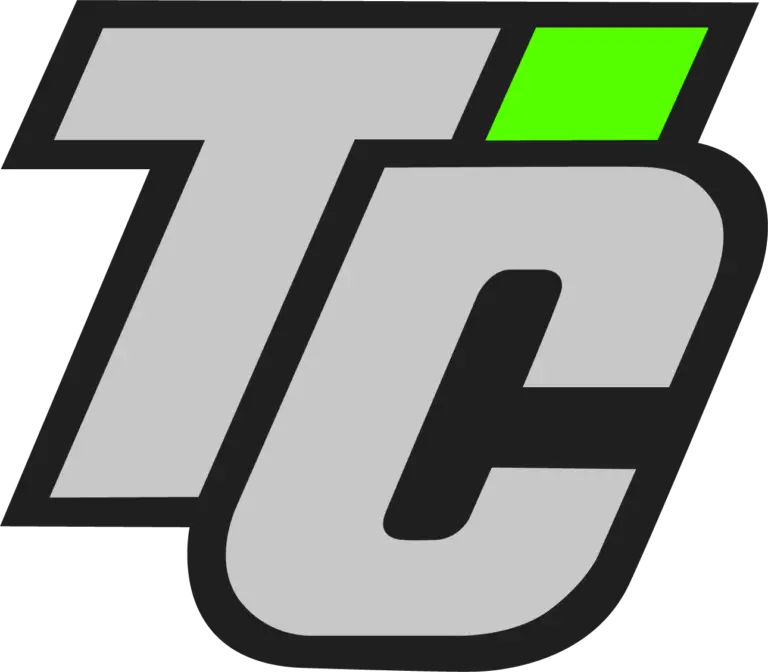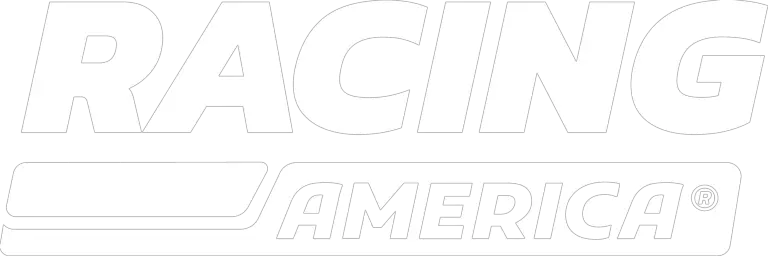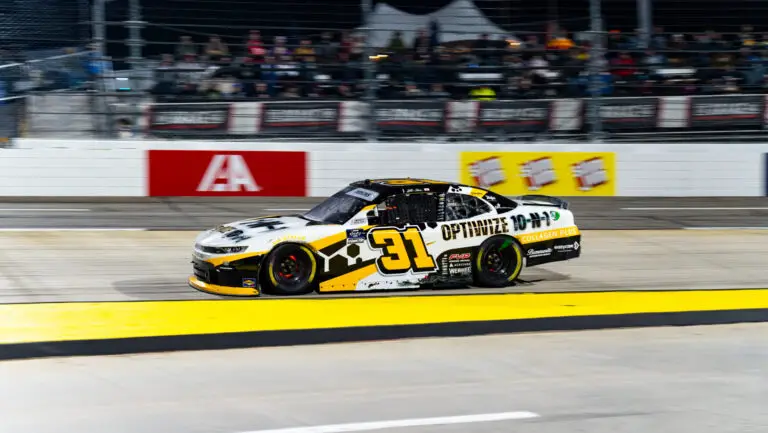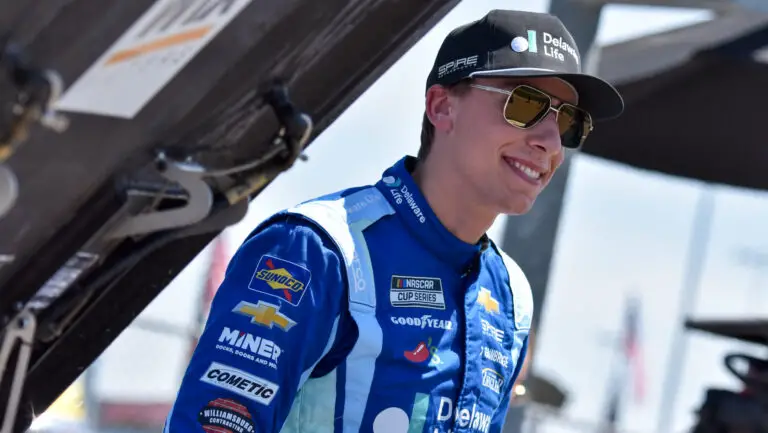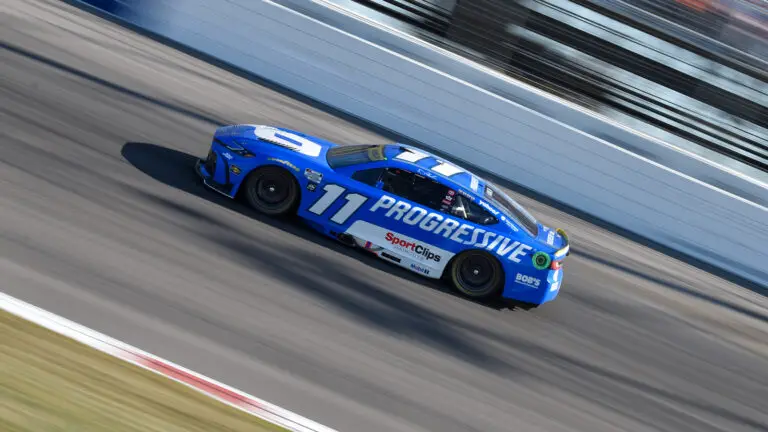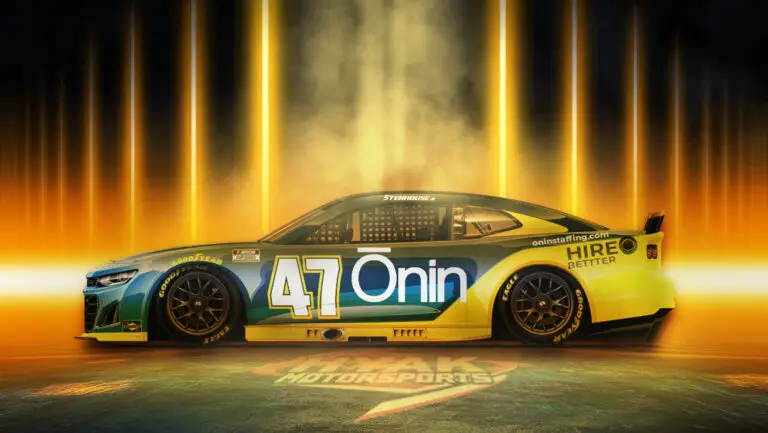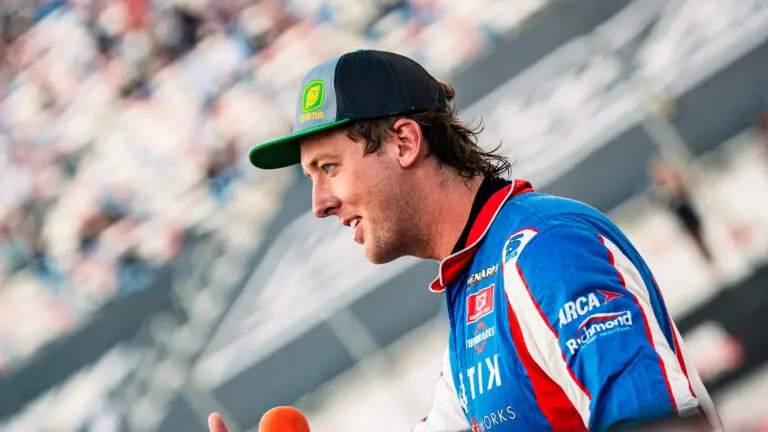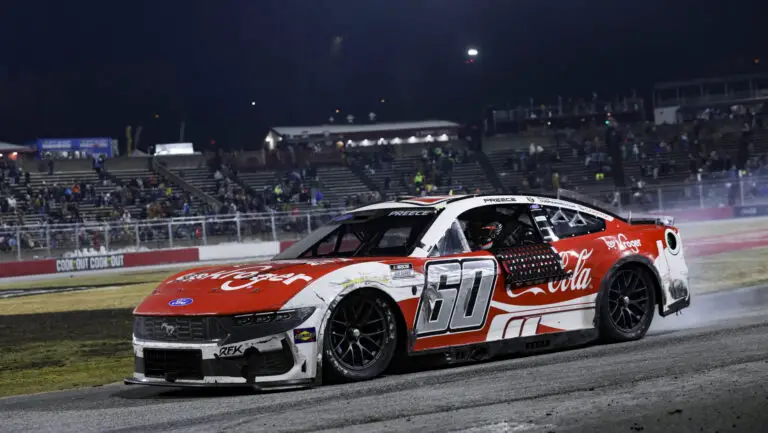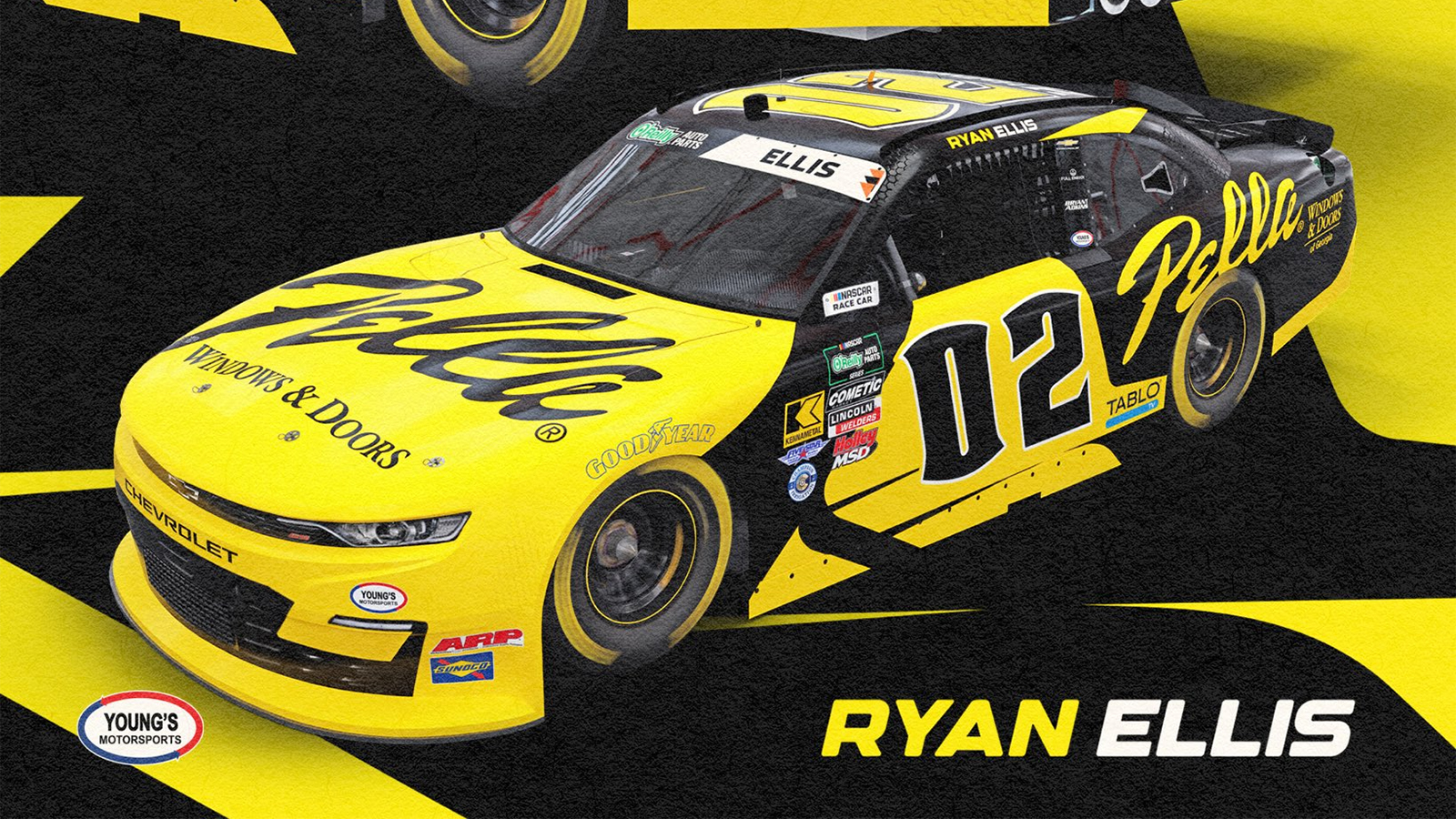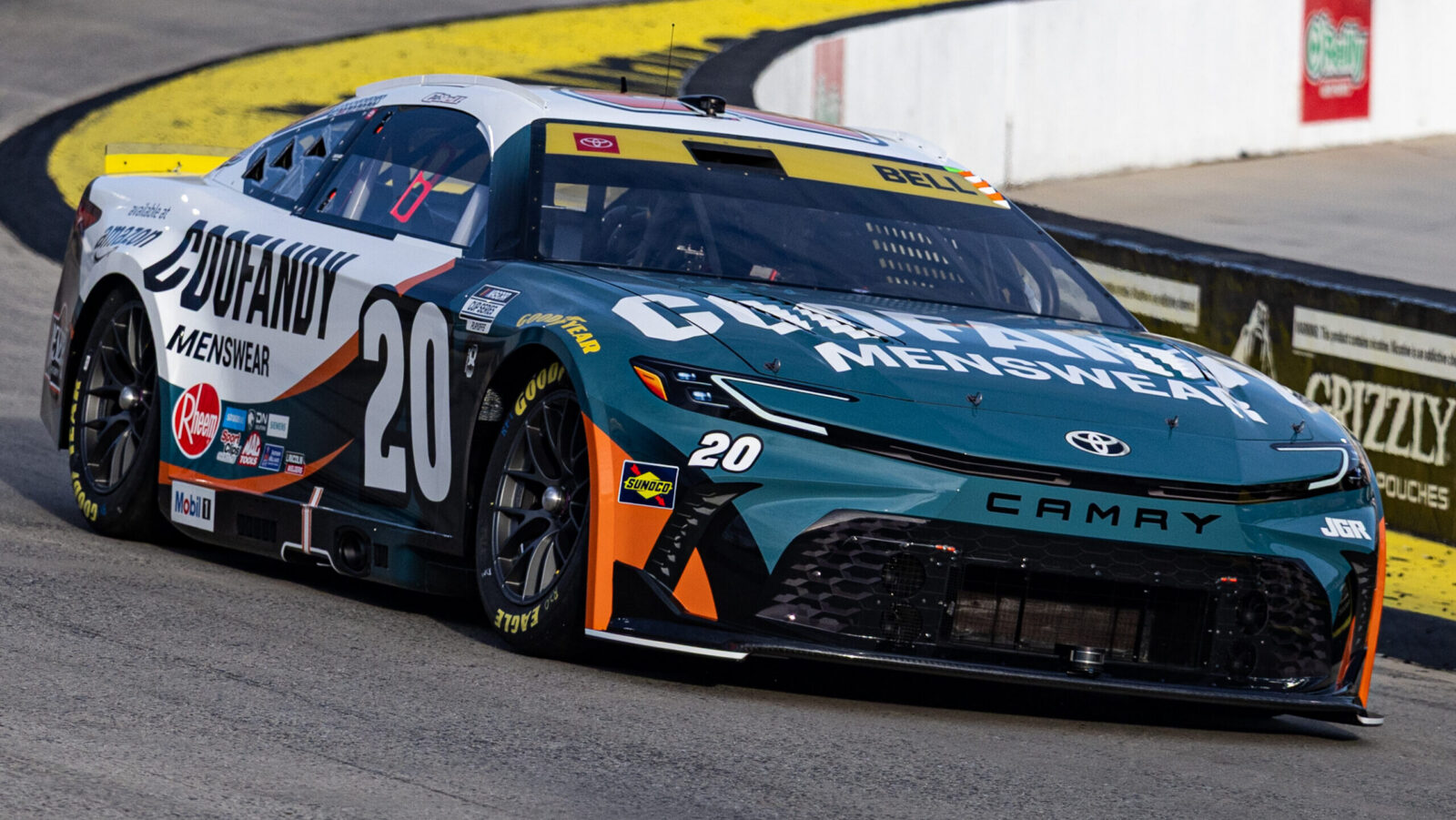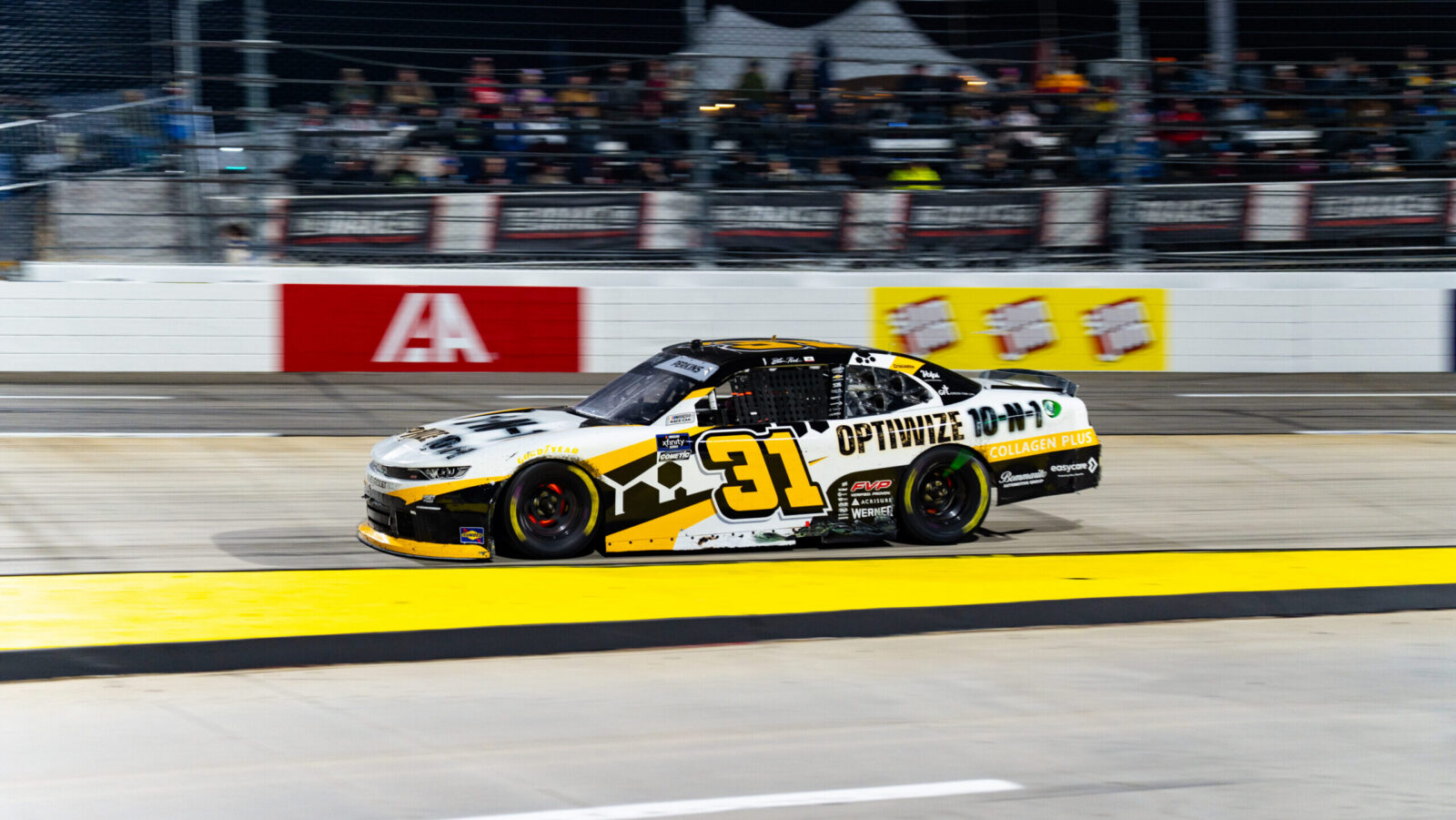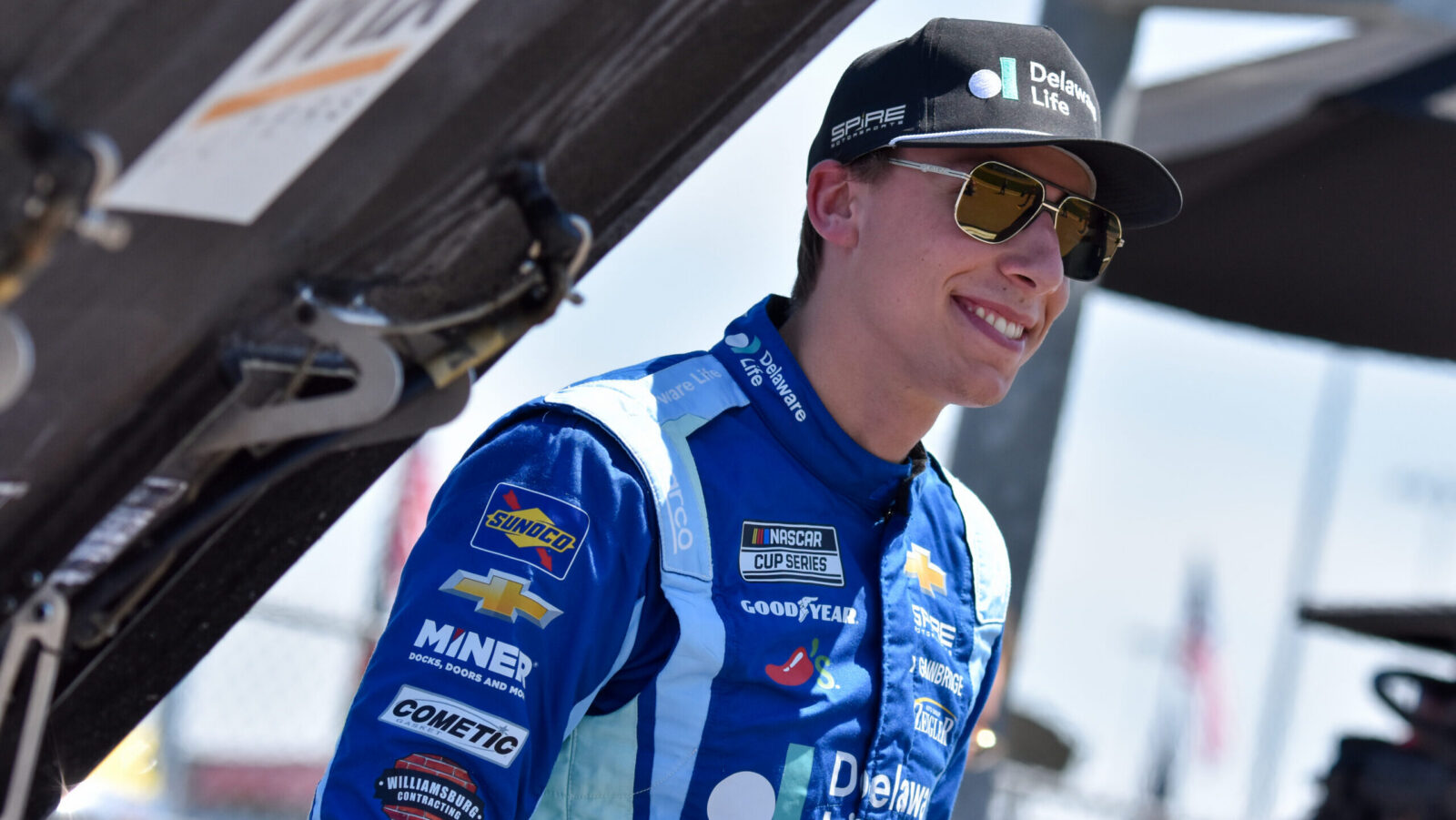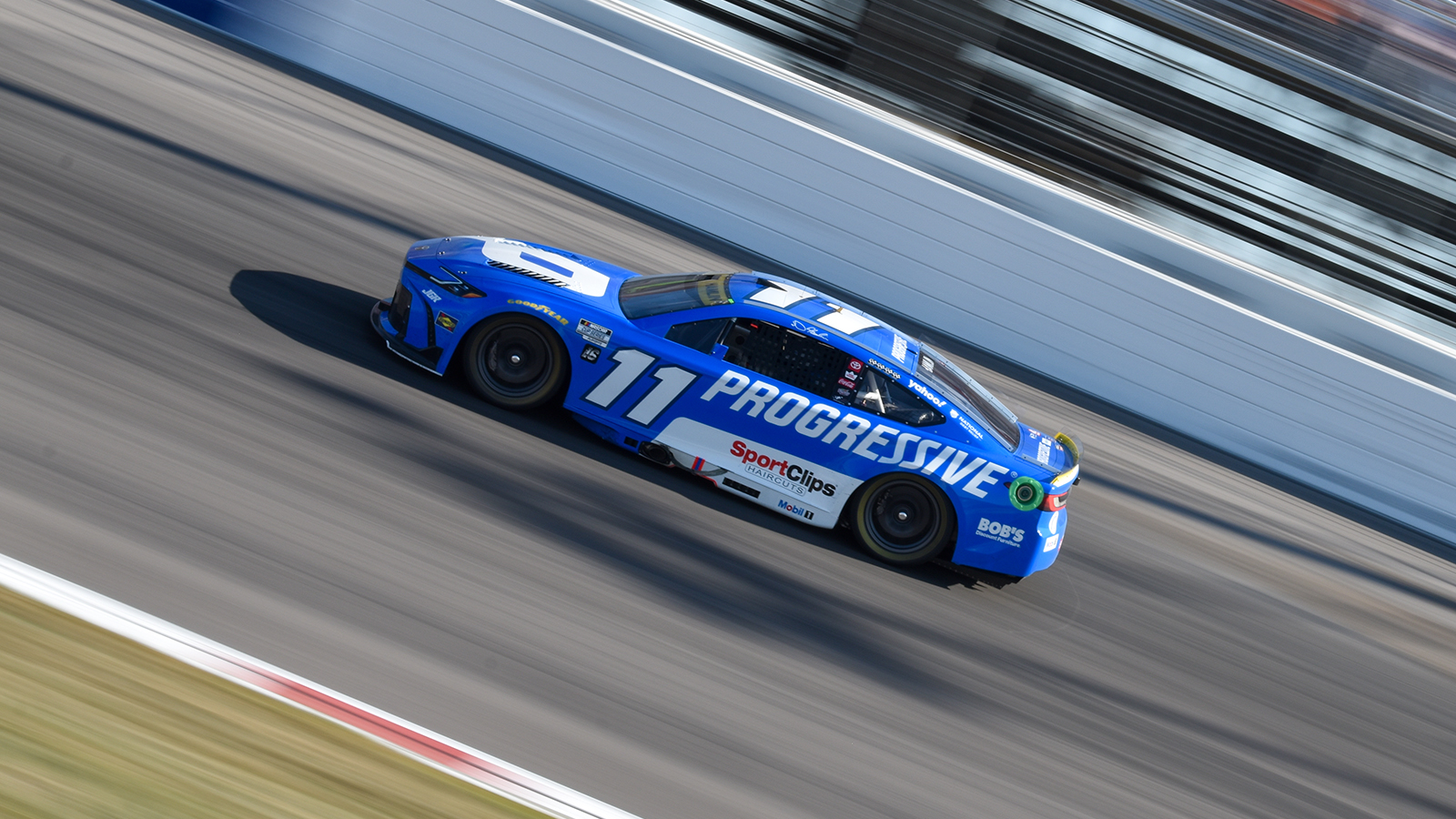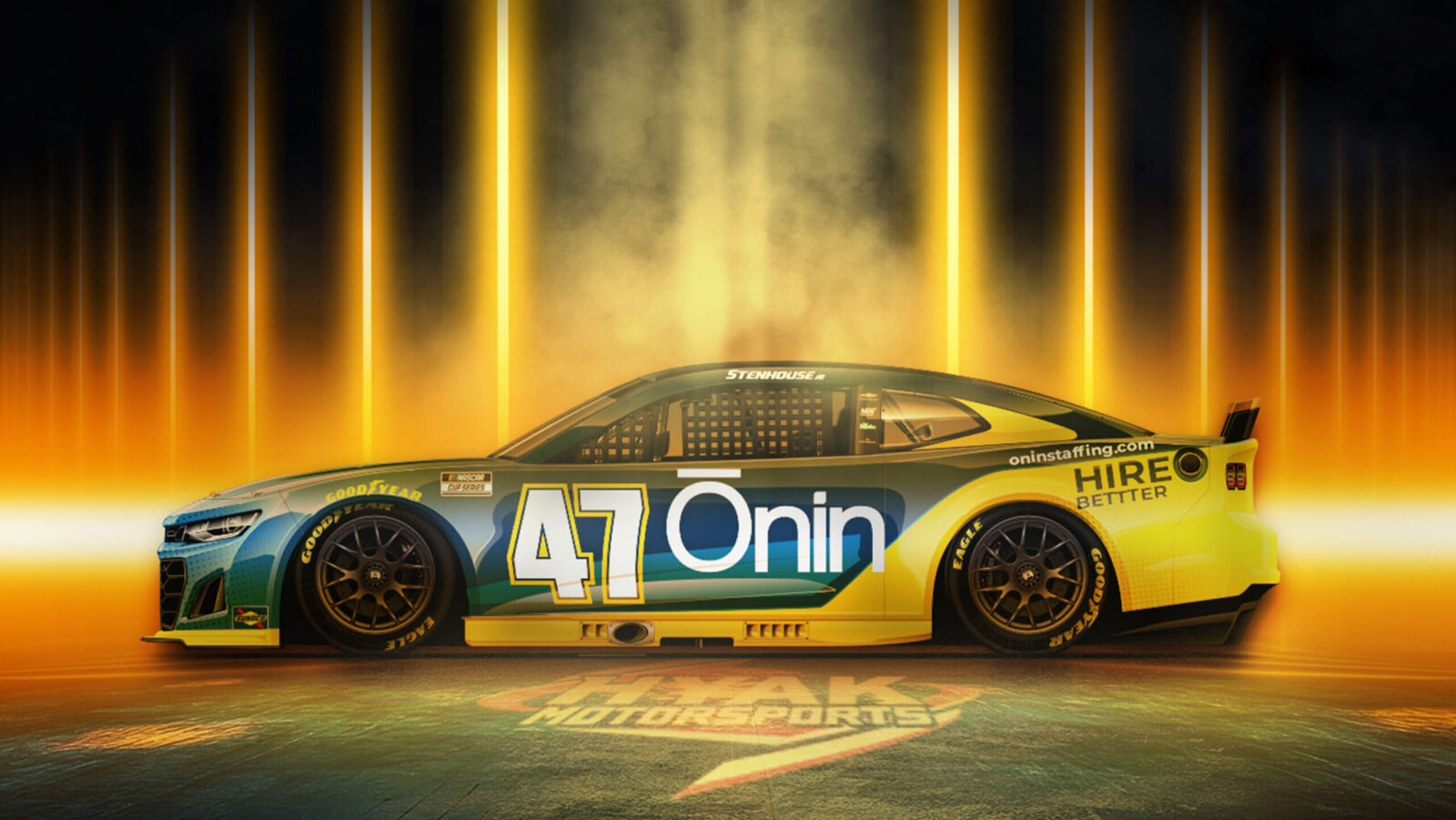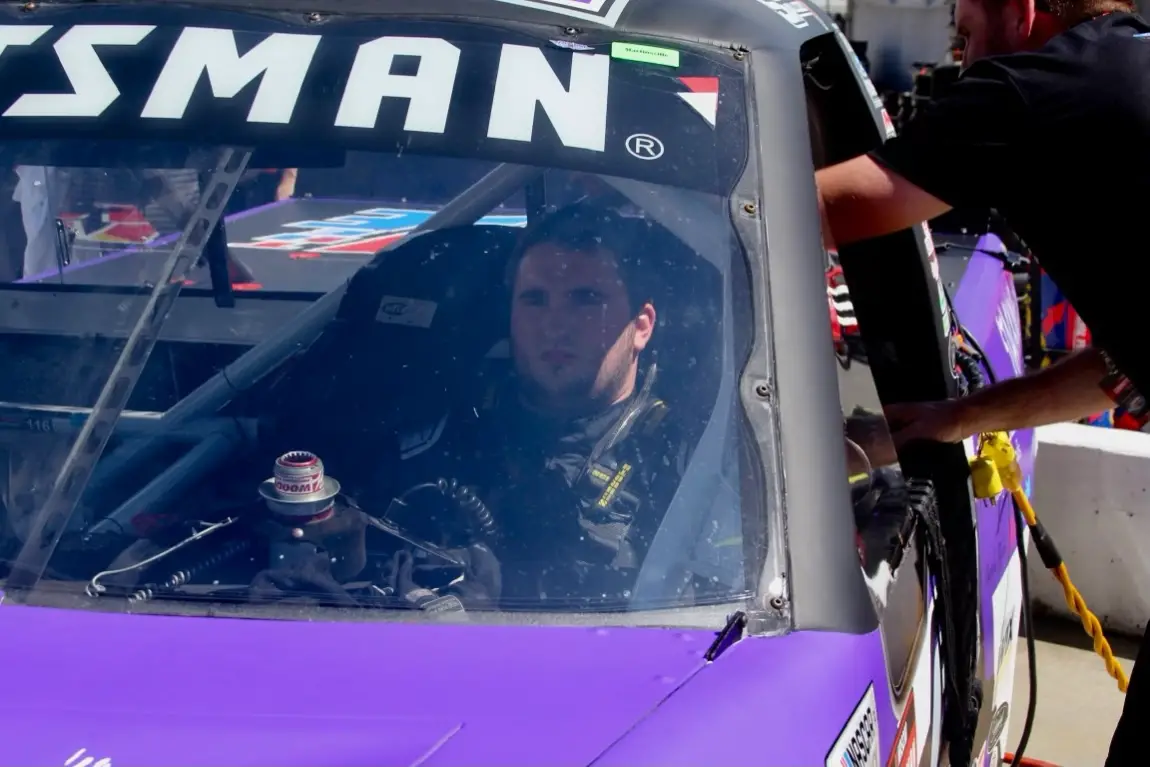
Welcome to The Memoirs of a Small-Time Racing Driver. In this periodic series, Stephen Mallozzi will take you on a behind-the-scenes journey of how an average Joe with big dreams and a good heart can still find their way to the NASCAR National Series driving ranks in modern-day NASCAR.
In this first installment, Mallozzi, who is set to make his third NASCAR Craftsman Truck Series start this weekend at Gateway, will lay out his backstory, where his racing dreams began, and the trials and tribulations he and his family went through to get the ball moving on his journey to his first NASCAR Craftsman Truck Series start.
Part One Table of Contents
- Getting to Know Me, and How My Racing Journey Began
- Life Hits Hard, Dreams Hit Harder
- Moving to Charlotte and Taking the Plunge
Getting to Know Me, and How My Racing Journey Began
Let me start off with this: I am just a guy. No different than any other person who might be reading this right now. But, because I have driven a NASCAR Craftsman Truck a couple of times, random people across the country know things about who I am. What people don’t realize is, being a NASCAR driver isn’t always all it is chalked up to be. It’s not all fun and games and turning left. Sometimes, it’s giving up a normal college life, constantly making phone calls, and feeding hungry people their Bloomin’ Onions.
When I was growing up, I had a nasty speech impediment. I really couldn’t speak in complete sentences. The one thing I could do, however, was name cars as they drove by. That sprouted into a love of diecast cars, which turned into playing NASCAR Thunder 2004 and MarioKart, which finally turned into me asking my old man to take me to a go-kart track for my ninth birthday.
Somehow, this all snowballed into a racing career. I went on to be a nationally ranked karting driver, even earning a spot as a Team USA representative and racing overseas. It looked like I was on a fast track to stock car racing. However, in 2016, my dad, my best friend, mechanic, and sponsor, got diagnosed with stage four terminal cancer. Doctors gave him somewhere between six and nine months to live.
I walked away from racing, never expecting to pick up a steering wheel again. I was tired. For a sophomore in high school, this felt like something I would never recover from. And for a long time, it managed to keep me down.
Life went on, and eventually, I landed on my feet. I graduated high school and went on to the University of Virginia to pursue a career as a lawyer. I stayed involved in kart racing, finding my footing as a racing commentator that eventually netted me a broadcasting job with ESPN and the ACC Network calling Virginia sporting events. But, I never truly let go of my desire to race. Then once again, my life (along with everyone else’s) was drastically changed when COVID-19 rocked the world.
I moved back home and can picture the day everything shut down vividly. I remember looking at the stock market and deciding on a whim to invest every dime I had in companies like Dave & Busters, Norwegian Cruise Lines, and even Bloomin’ Brands. I continued to invest almost everything I earned from delivering pizzas at Domino’s. I was working 50 hours a week, and immediately depositing my checks into a stock account. By the time 2020 ended, the initial twelve grand I had invested became worth over a hundred. That money would eventually become the money I would use to get behind the wheel.
Life Hits Hard, Dreams Hit Harder
Early in 2021, shortly after my birthday in January, I was sitting in my bed, fuming over the plethora of NASCAR news that had come out that very day about Daytona. I remember being rude and disruptive to everyone in my family. Finally, an unexpected character barged into my room to ask what my problem was.
My dad, almost five years after being given an expiration date from some of the best oncologists in the world, was still alive. I responded to his question, telling him I was frustrated because I never got my opportunity to race in NASCAR.
Almost angrily, the man who had devoted everything for years to my racing and had staved off cancer in an unbeatable battle for years turned and said to me something I will never forget.
“Son, if I treated my cancer the way you treated racing, I would have been dead five fucking years ago,” my father said.
He then walked away and didn’t say another word to me that night.
See, if some random man on the street said that to you, you’d feel ashamed of your efforts in some way. So, imagine how it feels when someone as close as your own father says it. It changes your whole perspective on life. That very night, I started sending email after email to try and find anyone who would help me find my footing in NASCAR. It had become my goal to make a NASCAR national series start with my dad around to see it. There was nothing I could say that could respond to that comment, but there was something I could do.
I sent maybe a thousand emails to potential sponsors and team owners. I reached out to quite literally every owner from Rick Hendrick to Ray Ciccarelli. Almost no one responded. The only owner who did was Bill McAnally. Mr. McAnally and I spoke on the phone shortly after he answered the email and he invited me to his driver development program. I was elated. I spent most of February and March trying to make it to the first race but ultimately struggled to find funding.
As a last-ditch effort, I reached out to Philadelphia 76ers commentator Marc Zumoff, an old pen pal of mine after we met at a Sixers game years ago. Marc answered, astounded that we had been talking all of these years and he never knew I even raced. He referred me to a colleague of his at NBC, which turned out to be former TobyChristie.com employee Michael Carey. Michael and I went for cheesesteaks in the city (he is a true Philadelphian, not a fake one from South Jersey like me), and he added me on an email chain with none other than Josh Reaume himself and a man named Peter Cellino.
To this day, I really don’t know exactly what Peter does. But, he called me within minutes of Michael’s email. He told me that if I spent what little capital I had on the driver development program, I’d likely never see the driver’s seat of a NASCAR stock car. Instead, he told me to pack my bags and move to Charlotte. I was astounded; by this point, it was the beginning of April and I was in the middle of my semester at UVA. Reluctantly, I indeed left Charlottesville and headed south.
I would like to preface this next part by saying, I have nothing against Mr. McAnally. I truly believe his intentions were pure and that he is one of the good guys in the garage area who really did want to help me out. But, the driver development program simply did not work. It had four or five drivers and did not get the media attention promised. I realized that I had likely dodged a bullet, and I had no choice at this point but to trust Peter.
Moving to Charlotte and Taking the Plunge
I remember moving my stuff into the house I had rented and sitting on the floor wondering what the hell I was doing. I had just trusted some man I had never met in my entire life, risking a lot of life stability just to take a random chance. It all seemed like a fever dream.
On Monday morning, Peter told me to go pick him up in the city. He put an address in my GPS and told me to drive. About forty-five minutes later, I walked into Reaume Brothers Racing for the first time. Josh Reaume asked me who I was; little did he know I’d end up being like a son to him. I spent that day unwrapping Jesse Iwuji’s #34 truck, completely starstruck by the people I saw go in and out of RBR that day.
I worked as an unpaid intern there from 9-5 every day for months. I would then head to Domino’s to work the night shift because I had to pay the bills somehow. Most nights, I would not get home until one or two in the morning. Add on the fact that I started traveling with the team and was finishing up my semester at UVA virtually as well, and you can probably understand just how exhausted I was.
Josh and I had some interaction but did not really grow close until July at Knoxville. After a late callout, Josh and RBR employee Matt Wolper (who had a heart attack at Bristol in 2020) got stuck driving the hauler all the way back. Josh asked me to ride with him to keep him awake, as the hauler had to make it back to Charlotte ASAP. I reluctantly agreed.
Josh and I bonded on that trip, becoming true friends over our racing background and upbringing. I told him more about my story, and he told more about his. We spent hours driving together throughout the night until eventually, Matt took back over. We blew a tire on the hauler during the trip and ended up walking over a mile to Chuck-E-Cheese to eat pizza. I’ll never forget that day; it was flat-out bizarre.
By the end of the trip, Josh was on board to start RBR development, a program for new drivers to find their footing. I purchased my own late-model equipment to help get it off the ground, while Josh committed time and shop resources to putting the thing together. It was a complete piece of junk. I bought the entire thing for fifteen thousand dollars with a motor.
I maybe did seven official races and a few practice days in that late model before I ran out of money around September. By that time, I had moved back to Charlottesville to resume college, and it looked like my racing career was at a standstill.
Stay tuned for the next installment of Stephen Mallozzi’s Memoirs of a Small-Time Racing Driver, where he will break down his first NASCAR Craftsman Truck Series start at Mid-Ohio Sports Car Course in 2022.
